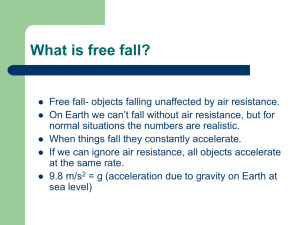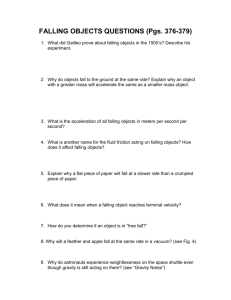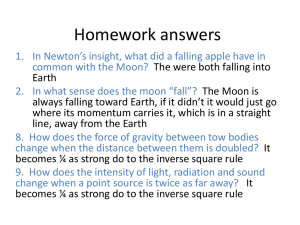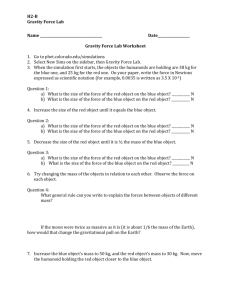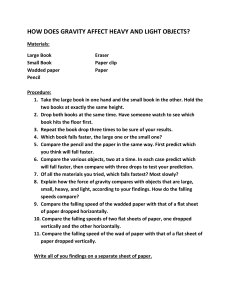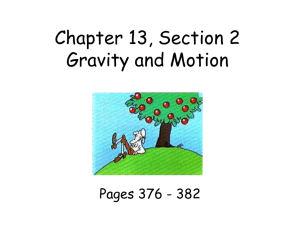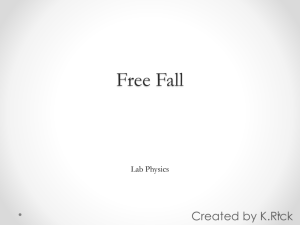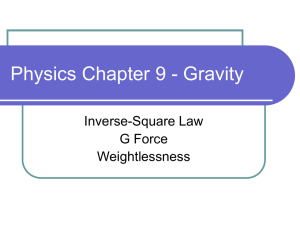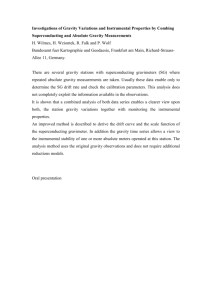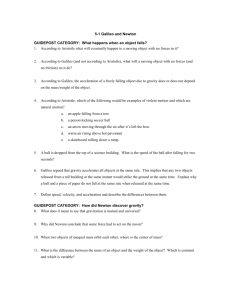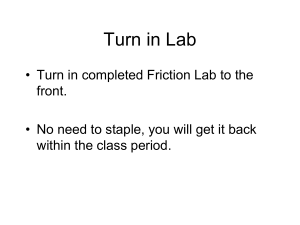Test Review Study notes, words and end of lesson questions for the
advertisement
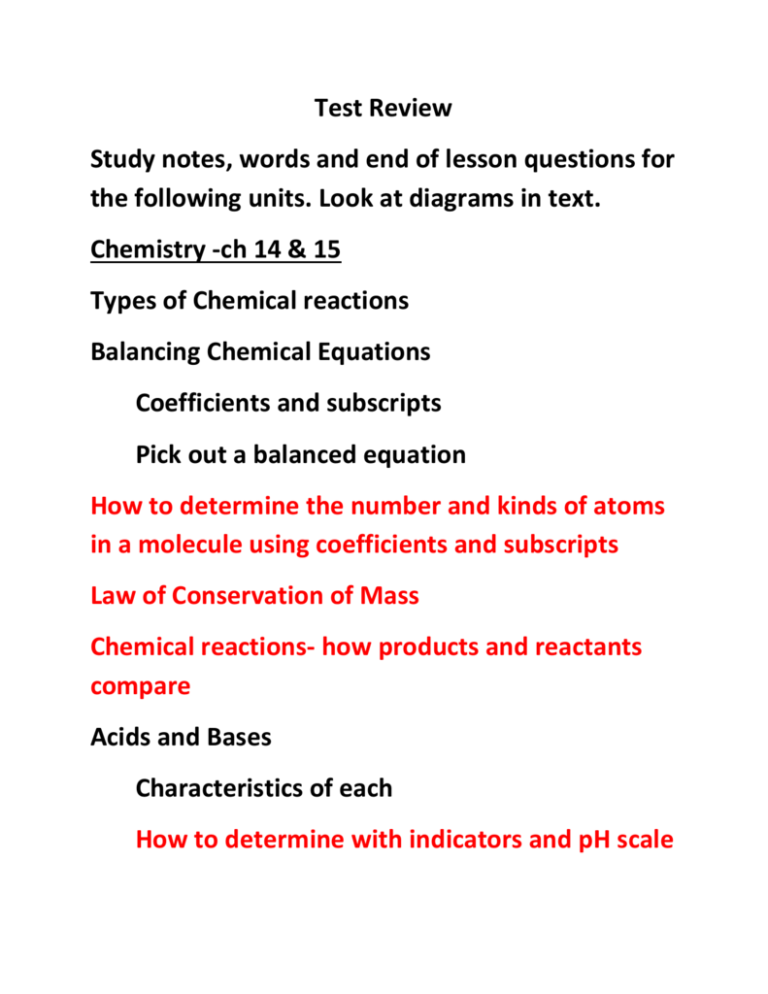
Test Review Study notes, words and end of lesson questions for the following units. Look at diagrams in text. Chemistry -ch 14 & 15 Types of Chemical reactions Balancing Chemical Equations Coefficients and subscripts Pick out a balanced equation How to determine the number and kinds of atoms in a molecule using coefficients and subscripts Law of Conservation of Mass Chemical reactions- how products and reactants compare Acids and Bases Characteristics of each How to determine with indicators and pH scale Neutralization Forces & Motion- ch 5 & 6 Speed – measurement, calculations and properties Difference between speed and velocity Velocity- measurement and calculation; properties Acceleration- measurement, calculation and properties Properties of falling objects Forces – balanced and unbalanced Units Calculating net force Friction – properties; harmful and helpful Increasing and reducing Effects Gravity – measurement, calculation and properties Effects Factors affecting strength of gravity Difference between weight and mass; units for each Gravity of falling objects – properties and acceleration due to gravity; calculations Air resistance and how it affects falling objects Freefall and examples Projectile motion – properties of horizontal and vertical components Newton’s Laws of motion – know all three and be able to determine examples Inertia and what affects it; how it affects acceleration Electricity& magnetism – ch 17 & 18 Difference between electric force and electric field Know law of electric charges How to make static charges How something gains a negative charge or a positive charge Conductors and Insulators What moves in a current? Ways to make electrons flow Electric discharge and examples How are lightning rods helpful and how do they work? Electric current Difference between AC and DC; give examples of each Properties, symbols and units for current, voltage and resistance; how to increase or decrease each Know relationships between current and voltage ; current and resistance Know ways of generating electrical energy Parts of electric circuit Properties and differences between series and parallel circuits Test for series and parallel circuits Function of fuse or circuit breaker and how they work Trace energy conversions in different types of power plants Describe relationship between electricity and magnetism Difference between solenoid and electromagnet; how to strengthen Function of motor; how it works Function of turbine Function of generator; how it works Comparison of motor and generator Step up and step down transformers; how they work and what they do How do compasses work Heat energy What direction does heat flow? In what kind of container will hot water cool fastest? Why is a white shirt cooler to wear in the summer than a black one?
